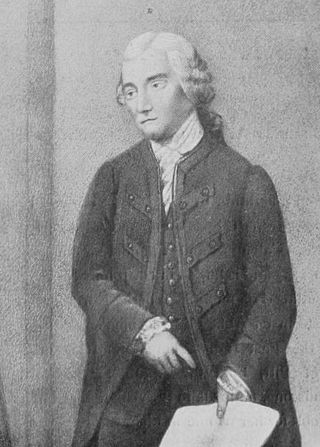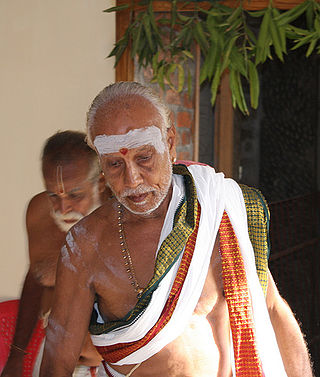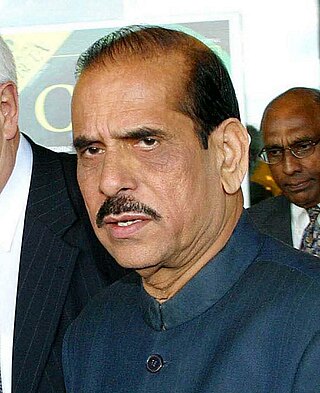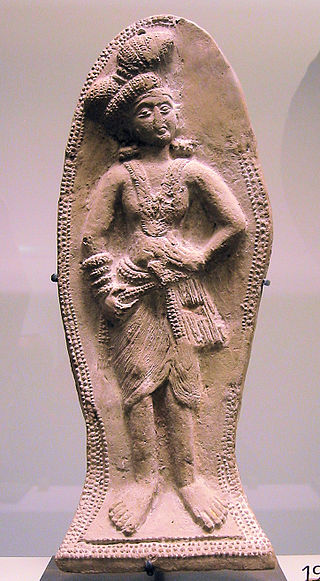The Bias/Vyas Brahmin is a Brahmin community found in the Indian states of Haryana, Punjab, Gujarat, Rajasthan, Uttar Pradesh and Delhi.Bias brahman are believed to have migrated from gujrat.[ citation needed ]
The Bias/Vyas Brahmin is a Brahmin community found in the Indian states of Haryana, Punjab, Gujarat, Rajasthan, Uttar Pradesh and Delhi.Bias brahman are believed to have migrated from gujrat.[ citation needed ]
Confirmation bias is the tendency to search for, interpret, favor, and recall information in a way that confirms or supports one's prior beliefs or values. People display this bias when they select information that supports their views, ignoring contrary information, or when they interpret ambiguous evidence as supporting their existing attitudes. The effect is strongest for desired outcomes, for emotionally charged issues, and for deeply entrenched beliefs.

Brahmin is a varna (caste) within Hindu society. The other three varnas are the Kshatriya, Vaishya, and Shudra. The traditional occupation of Brahmins is that of priesthood at Hindu temples or at socio-religious ceremonies, and the performing of rite of passage rituals, such as solemnising a wedding with hymns and prayers.

John Zephaniah Holwell was a surgeon, an employee of the British East India Company, and a temporary Governor of Bengal (1760). He was also one of the first Europeans to study Indian antiquities and was an early advocate of animal rights and vegetarianism.

Iyers are an ethnoreligious community of Tamil-speaking Brahmins. Most Iyers are followers of the Advaita philosophy propounded by Adi Shankara and adhere to the Smarta tradition. This is in contrast to the Iyengar community, who are adherents of Sri Vaishnavism. The Iyers and the Iyengars are together referred to as Tamil Brahmins. The majority of Iyers reside in Tamil Nadu, India.

Manohar Gajanan Joshi was an Indian politician from the state of Maharashtra, who served as the Chief Minister of Maharashtra from 1995 to 1999, and Speaker of the Lok Sabha from 2002 to 2004. He was one of the prominent leaders of the Shiv Sena, and also one of the Indians to be elected to all of the four legislatures.
'Varṇa', in the context of Hinduism, refers to a social class within a hierarchical traditional Hindu society. The ideology is epitomized in texts like Manusmriti, which describes and ranks four varnas, and prescribes their occupations, requirements and duties, or Dharma.

Pushyamitra Shunga or Pushpamitra Shunga was the founder and the first ruler of the Shunga Empire which he established to succeed the Maurya Empire. His original name was Puṣpaka or Puṣpamitra and the confusion between Puṣyamitra and Puṣpamitra arose because of the erroneous readings of 'p' and 'y' in the manuscripts.
Bias is an inclination toward something, or a predisposition, partiality, prejudice, preference, or predilection.
Saraswat Brahmins are spread over widely separated regions spanning from Kashmir and Punjab in North India to Konkan in West India to Kanara and Kerala in South India. In places such as western and southern India, the claim of Brahminhood of some communities who claim to be Saraswat Brahmins is disputed. The word Saraswat is derived from the Rigvedic Sarasvati River.
Deshastha Brahmin is a Hindu Brahmin subcaste mainly from the Indian state of Maharashtra and North Karnataka. Other than these states, according to authors K. S. Singh, Gregory Naik and Pran Nath Chopra, Deshastha Brahmins are also concentrated in the states of Telangana (which was earlier part of Hyderabad State and Berar Division), Andhra Pradesh and Madhya Pradesh (Which was earlier part of Central Provinces and Berar) Historian Pran Nath Chopra and journalist Pritish Nandy say, "Most of the well-known saints from Maharashtra, Karnataka and Andhra Pradesh were Deshastha Brahmins". The mother tongue of Deshastha Brahmins is either Marathi, Kannada or Telugu.
The Justice Party, officially the South Indian Liberal Federation, was a political party in the Madras Presidency of British India. It was established on 20 November 1916 in Victoria Public Hall in Madras by Dr C. Natesa Mudaliar and co-founded by T. M. Nair, P. Theagaraya Chetty and Alamelu Mangai Thayarammal as a result of a series of non-Brahmin conferences and meetings in the presidency. Communal division between Brahmins and non-Brahmins began in the presidency during the late-19th and early-20th century, mainly due to caste prejudices and disproportionate Brahminical representation in government jobs. The Justice Party's foundation marked the culmination of several efforts to establish an organisation to represent the non-Brahmins in Madras and is seen as the start of the Dravidian Movement.

Bengali Brahmins are the community of Hindu Brahmins, who traditionally reside in the Bengal region of the Indian subcontinent, currently comprising the Indian state of West Bengal and the country of Bangladesh.
Gaud Saraswat Brahmins (GSB), also known as Shenvis are a Hindu community of contested caste status and identity. They primarily speak Konkani and its various dialects as their mother tongue.
Brahmin Tamil is the name of a dialect of Tamil traditionally spoken by Tamil Brahmins. The dialect, largely, uses Classical Tamil along with a heavy proportion of Sanskrit derivatives.
Rajpurohit is a subsect of Brahmins living in western Rajasthan, India.

Bhumihar, also locally called Bhuinhar and Babhan, is a Hindu caste mainly found in Bihar, the Purvanchal region of Uttar Pradesh, Jharkhand, the Bundelkhand region of Madhya Pradesh, and Nepal.

Erode Venkatappa Ramasamy, revered by his followers as Periyar or Thanthai Periyar, was an Indian social activist and politician who started the Self-Respect Movement and Dravidar Kazhagam. He is known as the 'Father of the Dravidian movement'. He rebelled against Brahmin dominance and gender and caste inequality in Tamil Nadu. Since 2021, the Indian state of Tamil Nadu celebrates his birth anniversary as 'Social Justice Day'.

Yeh Mera India is a 2008 Hindi movie, written and directed by N. Chandra. The film stars Anupam Kher, Perizaad Zorabian, Sayaji Shinde Purab Kohli, Rajpal Yadav, Sarika, and Seema Biswas.

Ghimire is one of the surnames of the Brahmin varna belonging to Kashyap Gotra in the Hindu Varna System. The earliest known ancestor, the royal priest Gudpal Vyas, lived in Ghamir, Dhurkot, who moved from Ujjain, which was ruled by King Vikramaditya, ancient city situated on the eastern bank of the Kshipra River in the Malwa region of central India. Which is today part of the state of Madhya Pradesh, and it is the administrative centre of Ujjain District and Ujjain Division. Research Scholar, Parashu Ram Ghimire argues that the Brahmins who migrated from Ghamir to Musikot were called Ghamire/Ghimire, later in Musikot. In this logic claims Ghimire first started in Musikot.
Gyandil Das was a Nepalese poet and social reformer, later known as a "Saint". He opposed existing social discrimination, such as prevalent caste biases and gender-based violence, through his written compositions.